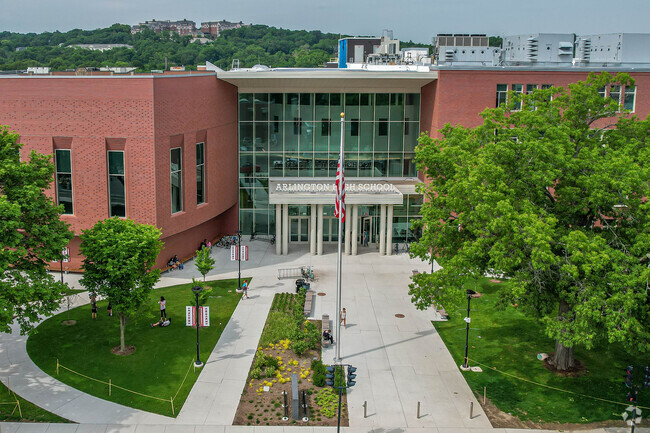Paparazzi Are Glorified Stalkers and It’s Getting Creepy
September 24, 2021
Paparazzi photographers (paps): people paid to take pictures of celebrities and public figures without their consent and sell them to publications to print stories that are, more often than not, made up. In the blink of an eye, a harmless photo of an actress grabbing coffee can turn into a conversation about her weight, what she’s wearing, and why she isn’t with her partner. Just because she’s in the same city as another celebrity she’s now dating them and pregnant with their baby. It’s insane.
Many people have become so desensitized to the idea of celebrities that we don’t even question things like this, but let’s boil it down to its core. There are people who get paid to follow around other people and take pictures of them and their loved ones without their consent. How is this not illegal? The Merriam-Webster dictionary definition of a stalker is “a person who pursues someone obsessively and aggressively to the point of harassment” It could be viewed as harassment everytime a celebrity is approached by an unwanted photographer or journalist, but here’s a more specific example. A video posted to ABC News’ YouTube channel in 2013 entitled: One Direction Singer Harassed by Photographers: Court Orders Paparazzi to Stay Away provides details on a story in which singer Harry Styles (19 at the time) secures a court order which stops a group of photographers in London from taking pictures of him in certain situations and being within 50 yards of his home among other things. Howard Bragman, a correspondent for ABC News said, “(if) the paparazzi have a price on your head, you’re hunted down like an animal. It’s literally oppressive”. In the video, Styles is pushed and shouted at by photographers, cameras snapping his every move. There should not be people paid to follow around others in situations in which they are clearly uncomfortable.
The lyrics to “Perfect”, the 2015 One Direction song,hint at the fact that paparazzi pics are just a part of everyday life for people with their level of fame. The bridge goes, “If you like cameras flashing everytime we go out…. Then baby you’re perfect, baby we’re perfect.” It’s sad to think that these people are so used to being approached by paps that they submit to the fact that they will get their picture taken with their significant other and in a song describing everything that would make a person perfect for them (e.i. “If you like causing trouble up in hotel rooms, if you like having secret little rendezvous”, etc.) they say that people who they are interested in dating should be okay with having their picture taken.
In a more recent example, actor Blake Lively posted a comment on Instagram in July of this year in response to a series of edited pictures of her and her three daughters. “You edit these images together to look like I’m happily waving. But that is deceitful. The real story: my children were being stalked by men all day. Jumping out. And then hiding….. Do you do background checks on the photographers you pay to stalk children? Where is your morality here? I would like to know. Or do you just not care about the safety of children? … Stop paying grown a** men to hide and hunt children.” Several times throughout the post Blake describes the encounter as “frightening”. If an everyday person was jostled around and quite frankly mobbed by photographers not to mention having pictures of their underaged children taken and published not only without their consent but with their express discomfort, it would be seen as invasive and very, very strange. They might even get arrested. But why is it okay for celebrities?
Another Magazine explains in an article titled: The History of Paparazzi Photographs, Beginning on the Streets of 50s Rome, “Over time it was these secretive and increasingly scandalous images that made the front pages. The thrill of the chase was no longer enough, a scoop was needed to sell publications… Paparazzi photography became marked as a predatory practice, with aggressive intrusion in order to achieve the best shot practically a necessity. The concept of the paparazzi took on an identity in its own right, hordes of celebrity photographers that moved in packs and their unsuspecting celebrity subjects even became fodder for organised photoshoots.” So far both the phrases “oppressive” and “aggressive intrusion” have been mentioned. These are strongly reminiscent of the stalker definition above.
The next step for these photos as they travel down the conveyor belt that is celebrity gossip, is to be sold to tabloids like The Daily Mail and other publications that love to make up stories to put a stain on the reputation of one celeb or another. With so much fake news out there today, it’s hard to know what’s true, which is what makes pictures taken out of context more dangerous. Stories discussing celebrities (particularly women’s) figures and clothing, speculating on their next project or just making up generally fictional statements are too common.
The fact that paparazzi are not only encouraged but paid to stalk celebrities and public figures, taking pictures of them and their underaged kids is frankly scary. Why do we enable these publications to publish fake news and damage the reputation and no doubt the feeling of personal safety and privacy felt by these public figures?









Bee Lowe • Feb 7, 2024 at 4:34 pm
This is very cool to read!
As an avid K-pop listener, I have become quite aware of paparazzi, as they are quite a thing.
I think this is a very important thing to share and bring awareness to others.
Ayah • Apr 24, 2023 at 2:45 pm
This was interesting! Never thought about it from that perspective before, thanks for widening my worldview.
Rosalind • Mar 28, 2023 at 1:54 pm
I completely agree with this! The normalization of hired stalkers has always seemed so absurd to me.
Louisa Snell • Dec 18, 2021 at 12:53 pm
I love how this is the most accurate thing in the world and nobody talks about it! Paparazzi are definitely getting more insane by the day.